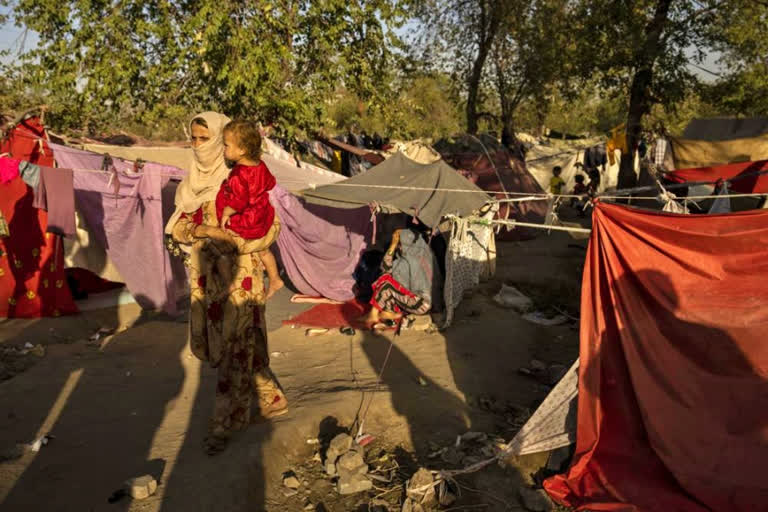Dubai (UAE): A month after the fall of Kabul, the world is still wrestling with how to help Afghanistan’s impoverished people without propping up their Taliban leaders — a question that grows more urgent by the day.
With the Afghan government severed from the international banking system, aid groups both inside Afghanistan and abroad say they are struggling to get emergency relief, basic services and funds to a population at risk of starvation, unemployment and the coronavirus after 20 years of war.
Among the groups struggling to function is a public health nonprofit that paid salaries and purchased food and fuel for hospitals with contributions from the World Bank, the European Union and the U.S. Agency for International Development. The $600 million in funds, which were funneled through the Afghan Health Ministry, dried up overnight after the Taliban took over the capital.
Now, clinics in Afghanistan’s eastern Khost Province no longer can afford to clean even as they are beset with COVID-19 patients, and the region’s hospitals have asked patients to purchase their own syringes, according to Organization for Health Promotion and Management’s local chapter head Abdul Wali.
“All we do is wait and pray for cash to come,” Wali said. “We face disaster, if this continues.”
Donor countries pledged during a United Nations appeal this week to open their purse strings to the tune of $1.2 billion in humanitarian aid. But attempts by Western governments and international financial institutions to deprive the Taliban-controlled government of other funding sources until its intentions are clearer also has Afghan’s most vulnerable citizens hurting.
Also read:UN calls for quick release of USD 1.2 billion aid to Afghanistan
The World Bank, the International Monetary Fund and the European Union suspended financing for projects in Afghanistan, and the United States froze $7 billion in Afghan foreign reserves held in New York. Foreign aid to Afghanistan previously ran some $8.5 billion a year — nearly half of the country’s gross domestic product.
Without access to its own or foreign funds, the interim government in Kabul can’t even pay the import taxes needed to bring containers of badly needed food from a port in Pakistan, the country’s Chamber of Commerce and Industry Vice Chairman Yonus Momand said.
The West’s strategy is to strangle the Taliban’s finances to induce Afghanistan’s new leaders to respect the rights of women and religious minorities. The all-male, hard-line Cabinet appointed last week includes several ministers subject to U.N. sanctions and one with a $5 million FBI bounty on his head.
While it’s unclear how long Afghan central bank reserves will remain out of reach, American officials insist that humanitarian groups can sidestep Taliban authorities to deliver directly to the needy Afghans fearing for their lives and futures in the wake of the chaotic U.S. pullout.
“It’s definitely still possible to meet the basic needs of Afghans without rewarding the government with broader economic assistance and diplomatic recognition,” said Lisa Curtis, former South and Central Asia director of the U.S. National Security Council.
But the situation on the ground shows the limits of that approach. Fighting over the years has displaced over 3.5 million people — including over half a million since the start of the year. The price of basic goods has soared. Bank lines snake down streets as people wait hours, even days, to withdraw money so they can feed their families.
While individuals are allowed to withdraw a maximum of $200 per week from Afghanistan’s banks, organizations are unable to get any funds. The paralysis has hampered the work of local authorities who used World Bank development funds to pay for health services and clean water, as well as international charitable groups trying to run vast aid operations.
“The cash remains the main issue,” said Stefan Recker, Afghanistan director for Catholic relief organization Caritas. “We cannot pay our own staff, run our aid projects or implement badly needed new programs.”
